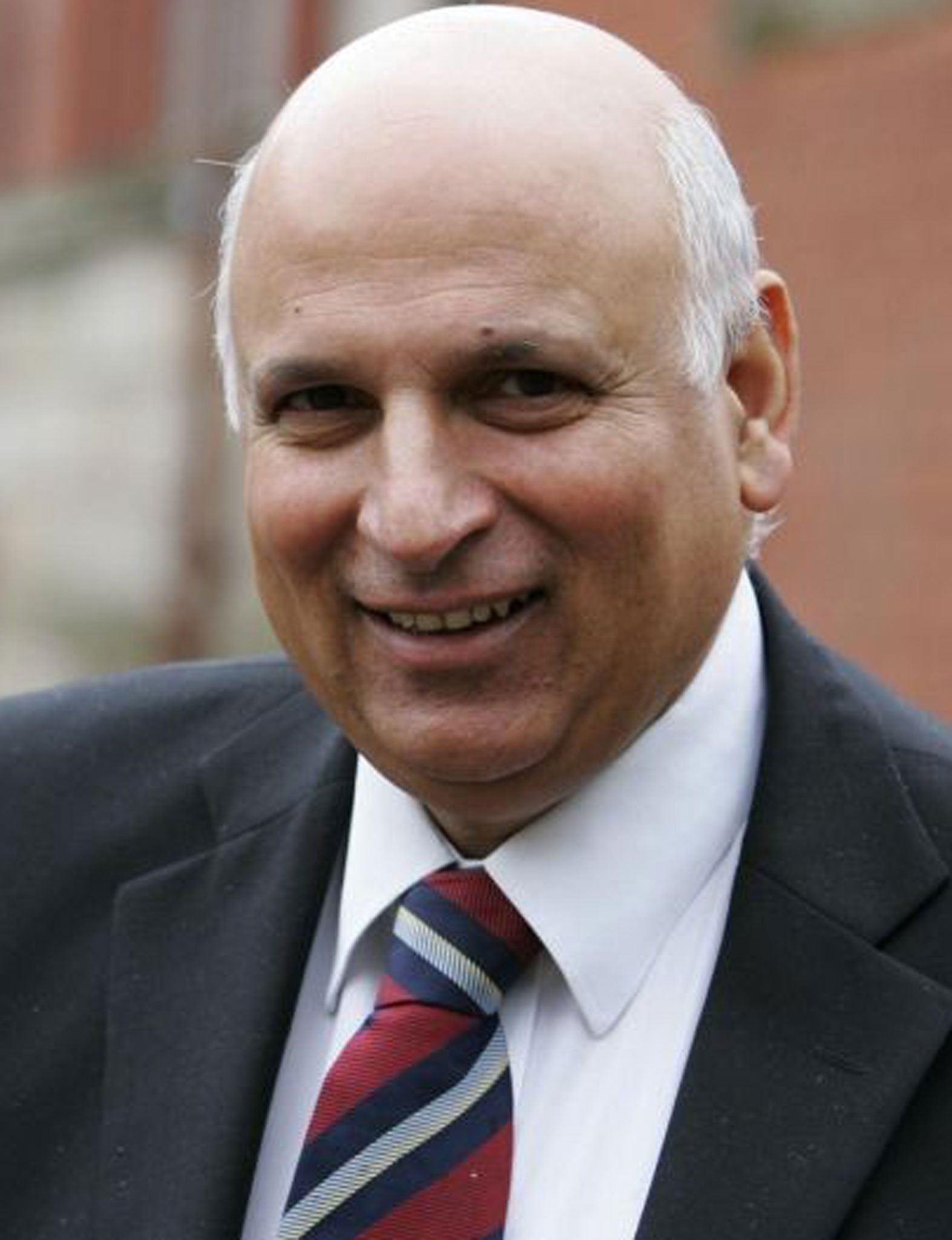UK's first Muslim MP Mohammad Sarwar becomes governor of Pakistan's Punjab province
Mr Sarwar was an MP for Glasgow from 1997 to 2010

Your support helps us to tell the story
From reproductive rights to climate change to Big Tech, The Independent is on the ground when the story is developing. Whether it's investigating the financials of Elon Musk's pro-Trump PAC or producing our latest documentary, 'The A Word', which shines a light on the American women fighting for reproductive rights, we know how important it is to parse out the facts from the messaging.
At such a critical moment in US history, we need reporters on the ground. Your donation allows us to keep sending journalists to speak to both sides of the story.
The Independent is trusted by Americans across the entire political spectrum. And unlike many other quality news outlets, we choose not to lock Americans out of our reporting and analysis with paywalls. We believe quality journalism should be available to everyone, paid for by those who can afford it.
Your support makes all the difference.The man who made history by becoming Britain’s first Muslim member of parliament has been sworn in as governor of Pakistan's most populous and politically important province. A previous incumbent of the position was shot dead by his police bodyguard.
Mohammad Sarwar, who stood down as an MP three years ago having represented the people of Glasgow since 1997, has been obliged to give up his British citizenship to take on the new role as governor of Punjab.
In his first comments after being sworn in on Monday, Mr Sarwar said one of his priorities was to try and get more children into school and see an extra one million youngsters admitted every year.
“I have come to Pakistan with a heavy heart, leaving behind the companionship of 35 years in England, but my heart beats for Pakistan”, he told reporters after taking the oath, according to the Associated Press of Pakistan.
Punjab, where Mr Sarwar was born before moving to Britain, is Pakistan’s wealthiest and most powerful province. Yet even there educating children remains a massive challenge. Figures collated last year by Unicef suggest that after Nigeria, Pakistan has the highest number of children who do not attend school.
On average, a child in Pakistan will attend school for less than six years, while in rural areas the amount of schooling obtained by most youngsters is considerably less. Girls fare particularly badly, a point pressed home by teenage campaigner, Malala Yousafzai, the schoolgirl and activist who was shot and seriously injured by the Taliban last year.
In a speech delivered after he was sworn in, Mr Sarwar talked of his own childhood as the son of a farmer, obliged to walk several miles every day to get to school near the town of Faisalabad.
“Pakistan is surrounded by many problems - poverty, unemployment, health inequalities, an ongoing energy crisis, terrorism, and human rights violations,” he said. “I have always believed that the best route out of these problems is through education.”
He added: “I want every child, no matter their background, to have the same opportunities as I had, to maximise their potential, and to go on their journey to fulfil their dreams.”
The 60-year-old Mr Sarwar made history when he became Britain’s first Muslim MP in 1997, securing the Glasgow Govan constituency for Labour. He later contested and won the Glasgow Central seat and stood down as an MP in 2010. His seat was subsequently won for Labour by Mr Sarwar’s son, Anas.
Reports suggested Mr Sarwar, who served on the Scottish Affairs Select Committee, is worth an estimated £16 million, having built up a family wholesale business with his brother which they established in 1982.
Mr Sarwar, who in 1997 swore his parliamentary oath while holding a copy of the Koran, has maintained close links with the powerful Sharif family and earlier this year he helped Nawaz Sharif in his successful campaign to become Pakistan’s prime minister. While serving as a British MP, he was active in relief and emergency operations for Pakistan.
The former MP knows that he is taking up the position at a time when Punjab and the rest of Pakistan are facing huge problems, including unemployment, a crippling power shortage and a near constant danger from Islamist militants.
In theory, the position of governor is largely ceremonial. But during times of crisis, such as in 2009 when Pakistan’s then president Asif Ali Zardari, acted to suspend the provincial assembly of Punjab and impose “governor’s rule” by the central government, the position has taken on huge influence. An amendment to the constitution in 2010 has diluted the president’s ability to act in such a way.
A former governor of the province, Salman Taseer, was shot dead by his police bodyguard in January 2011 after voicing his support to reform the country’s controversial blasphemy laws.
Rasul Bakhsh Rais, a political analyst based in Lahore, the capital of Punjab, said it was the first time a middle-class person had been appointed to the post. “He is someone who went away and succeeded in the UK but never forgot about his links to Pakistan,” he said.
Join our commenting forum
Join thought-provoking conversations, follow other Independent readers and see their replies
Comments